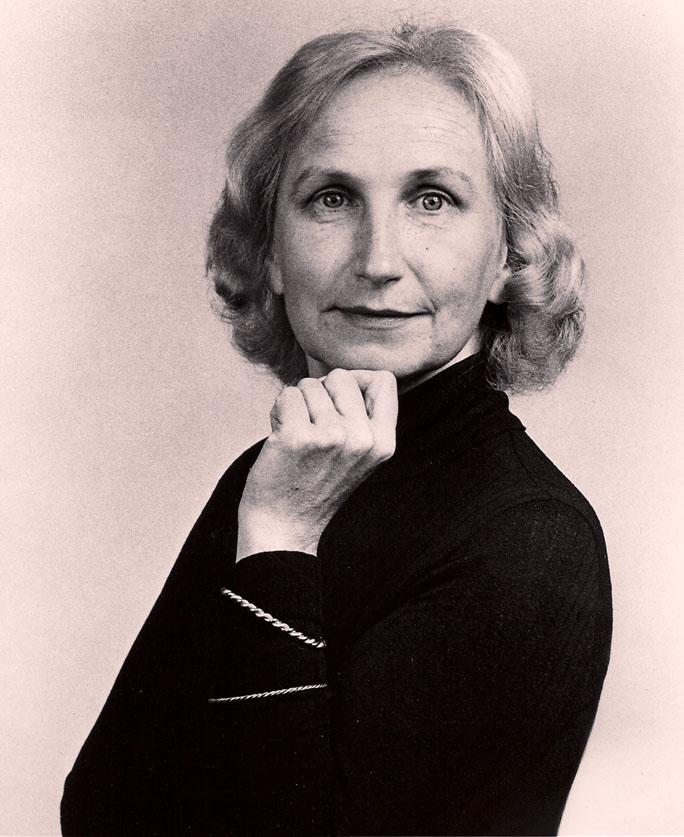

| Bethany Beardslee (born December
25, 1925) is an American soprano particularly noted for her collaborations
with major 20th-century composers, such as Igor Stravinsky, Milton Babbitt, Pierre Boulez, George Perle, Sir Peter Maxwell Davies
and her performances of great contemporary classical music by Arnold Schoenberg,
Alban Berg, Anton Webern. Her legacy amongst midcentury composers was as a
"composer's singer"—for her commitment to the highest art of new music. Milton
Babbitt said of her "She manages to learn music no one else in the world
can. She can work, work, work." In a 1961 interview for Newsweek, Beardslee
flaunted her unflinching repertoire and disdain for commercialism: "I don't
think in terms of the public... Music is for the musicians. If the public
wants to come along and study it, fine. I don't go and try to tell a scientist
his business because I don't know anything about it. Music is just the same
way. Music is not entertainment." Beardslee was born in Lansing, Michigan. She trained first in the Music Department of Michigan State College, where she received her B.M. (cum laude), and later did post-graduate work at the Juilliard School. She trained with Louise Zemlinsky (wife of Alexander Zemlinsky). She received an honorary doctorate from Princeton University in 1978, an honorary Ph.D. from the New School for Music Philadelphia, PA in 1984, and from the New England Conservatory in 1994. Her first husband, the French conductor Jacques-Louis Monod, whom she married in 1951, introduced her to the basic vocal repertoire of the Second Viennese School. Together they toured the United States through the 1950s and gave recitals of this literature combined with basic Lieder. Monod's influence brought Beardslee onto the path that would become her career in contemporary classical music. In 1956, she married the composer Godfrey Winham, a pioneer in the research of computer music of the period. They have two children, Baird and Christopher Winham. Godfrey Winham died in 1975. She retired officially in 1984, though she performed a number of times in the decade that followed. Her final public performance was 1993 at the Weill Recital Hall in New York City. About that performance, Alex Ross wrote in The New York Times that "the legendary soprano Bethany Beardslee-Winham, now well into her sixties, remains a compelling interpreter of new music." In retirement, she was president of APNM (Association for the Publication of New Music) and produced a number of CDs of her own performances, as well as the compositions of her late husband Godfrey Winham, and her friend Arlene Zallman. Her virtuosity is displayed in many recordings of music of the Second Viennese School as well as works written for her, notably Milton Babbitt's Philomel. During the 1950s, she performed world premieres and made historic recordings of music of the Second Viennese School. In 1962 she was given the American Composers Alliance Laurel Leaf Award for "distinguished achievement in fostering and encouraging American music." Beardslee's recording with Robert Craft of Schoenberg's "Pierrot Lunaire" (Columbia Records, 1961) was a milestone in 20th-century music. It was the first recording of the piece that used the sprechstimme in the way that Schoenberg had conceived the piece. Craft, who conducted it, said to Beardslee that "your performance is the first that anyone can listen to beginning to end with total pleasure and belief in the spreschstimme medium. You have made a permanent document." It was also the recording used by Glen Tetley when he choreographed Pierrot Lunaire. In 1977-78, Rudolf Nureyev, dancing Tetley's choreography to Beardslee's live performances, appeared together in New York, Los Angeles, and Paris. Beardslee went on to perform "Pierrot" over fifty times in the US and abroad. -- Names which are links (both
in this box and in the text below) refer to my interviews elsewhere on this
website. BD
|
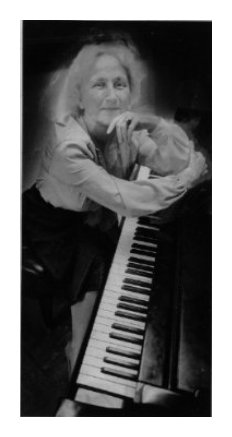 BD: Lilli Lehmann was fond of saying that singing
Norma was even worse than singing
three of the Wagner roles, so maybe Wagner needed a Norma for it.
BD: Lilli Lehmann was fond of saying that singing
Norma was even worse than singing
three of the Wagner roles, so maybe Wagner needed a Norma for it.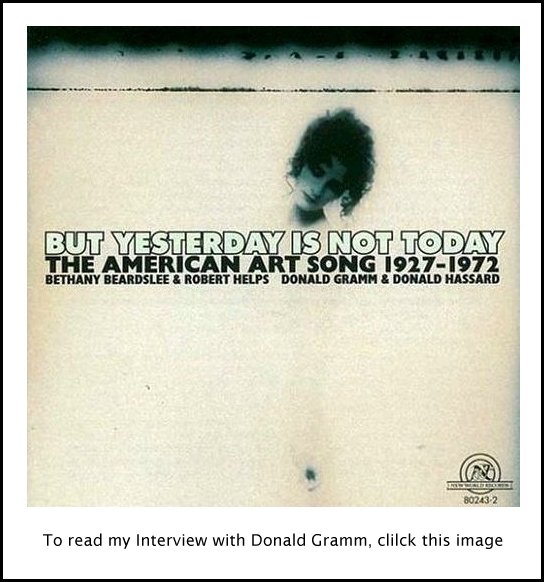 Bethany: It’s lost. There’s so much fragmentation
now. Developmental music is such that it does not mean what it did then.
Bethany: It’s lost. There’s so much fragmentation
now. Developmental music is such that it does not mean what it did then.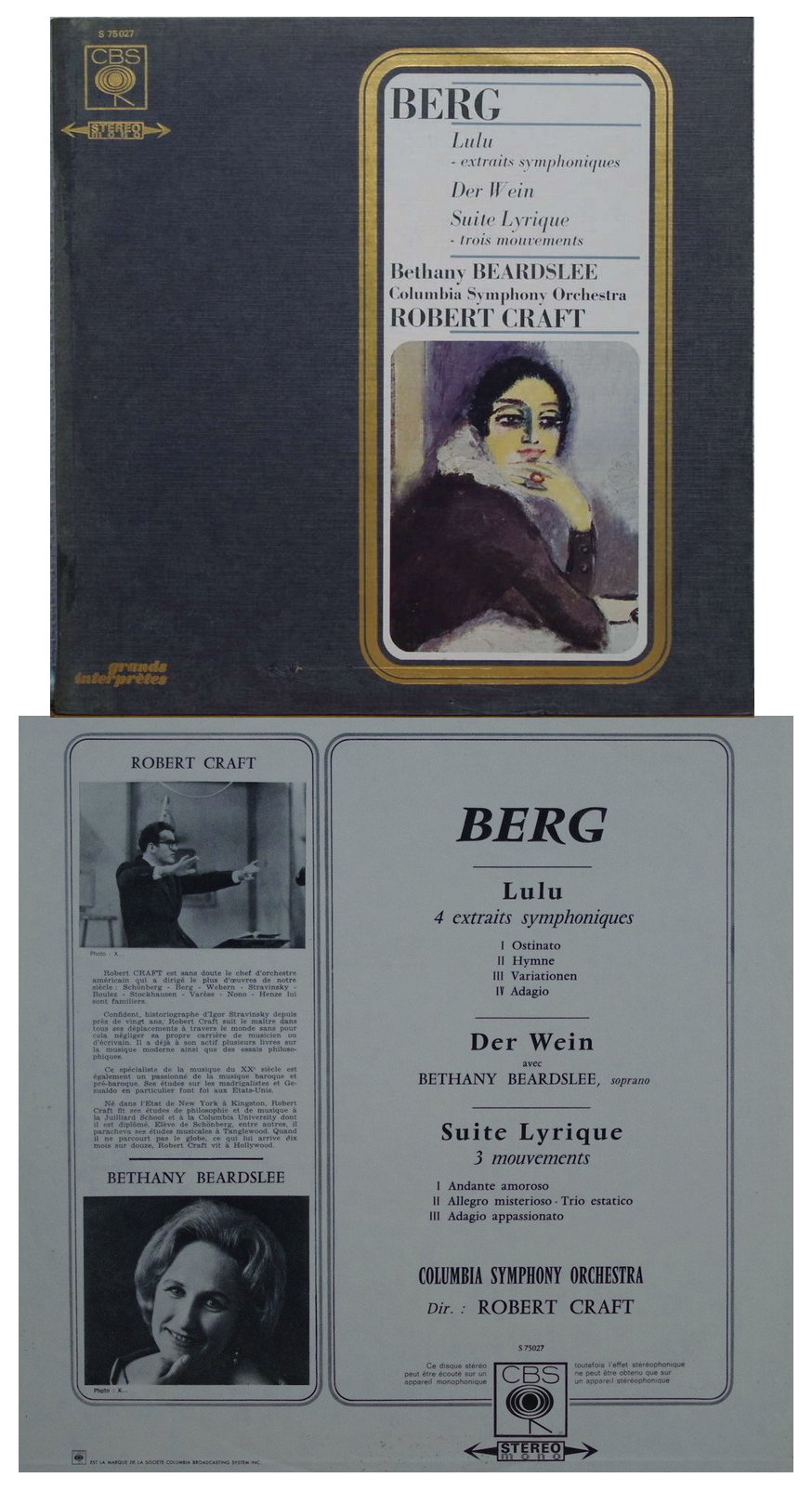
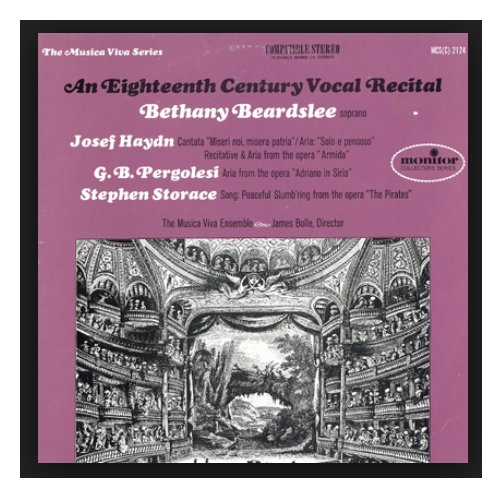 Bethany: You always bring something of yourself
to it. That’s the one thing that’s so wonderful about the human voice.
You have your own timbre, and it’s uniquely yours. No one has your sound,
so as far as your gift, your artistry, that’s a unique talent. All
those things. I’ve always told my students, even when they’re working
on a Schubert song, once the work is over, then you’ve got to feel as though
when you perform that song it’s the first time you’ve done it, and that spontaneity
has to be there. It has to be as though the whole thing was just spatial,
and this music was absolutely for the first time coming from you. It
has to have that spontaneity. That makes for great performances and
the listener feels that. He receives that spontaneity and that sense
of it’s being right. He feels that’s musical, that’s the way it should
go.
Bethany: You always bring something of yourself
to it. That’s the one thing that’s so wonderful about the human voice.
You have your own timbre, and it’s uniquely yours. No one has your sound,
so as far as your gift, your artistry, that’s a unique talent. All
those things. I’ve always told my students, even when they’re working
on a Schubert song, once the work is over, then you’ve got to feel as though
when you perform that song it’s the first time you’ve done it, and that spontaneity
has to be there. It has to be as though the whole thing was just spatial,
and this music was absolutely for the first time coming from you. It
has to have that spontaneity. That makes for great performances and
the listener feels that. He receives that spontaneity and that sense
of it’s being right. He feels that’s musical, that’s the way it should
go.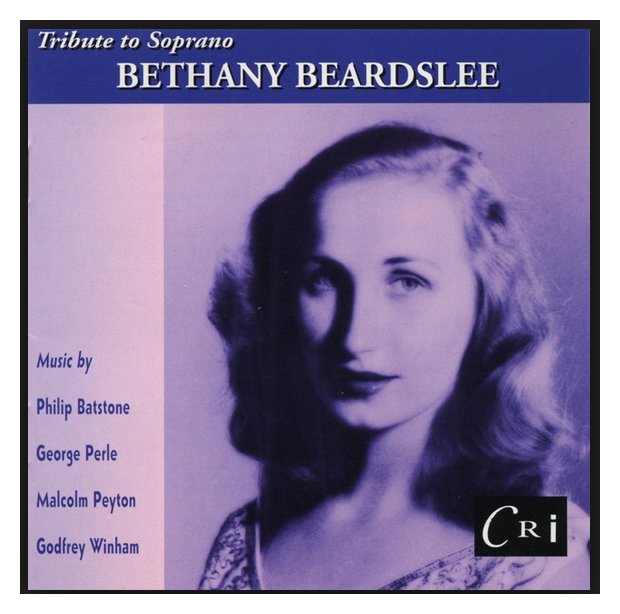 BD: Might that change the dynamics since people
can listen to these without having to be part of a massed audience for a live,
one-shot performance?
BD: Might that change the dynamics since people
can listen to these without having to be part of a massed audience for a live,
one-shot performance?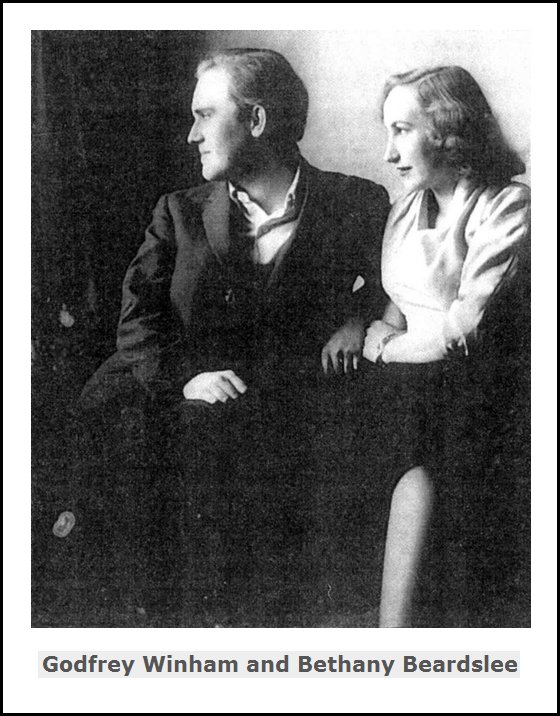 Bethany: Yes, I was very fortunate. My husband
was well-to-do, and so I thought of myself as a subsidized singer. [Laughs]
Bethany: Yes, I was very fortunate. My husband
was well-to-do, and so I thought of myself as a subsidized singer. [Laughs]
© 1995 Bruce Duffie
This conversation was recorded in the studios of WNIB, Classical 97 in Chicago on June 18, 1995. Portions (along with recordings) were broadcast on WNIB in 1997. This transcription was made in 2014, and posted on this website at that time. My thanks to British soprano Una Barry for her help in preparing this website presentation.
To see a full list (with links) of interviews which have been transcribed and posted on this website, click here.
Award - winning broadcaster Bruce Duffie was with WNIB, Classical 97 in Chicago from 1975 until its final moment as a classical station in February of 2001. His interviews have also appeared in various magazines and journals since 1980, and he now continues his broadcast series on WNUR-FM.
You are invited to visit his website for more information about his work, including selected transcripts of other interviews, plus a full list of his guests. He would also like to call your attention to the photos and information about his grandfather, who was a pioneer in the automotive field more than a century ago. You may also send him E-Mail with comments, questions and suggestions.